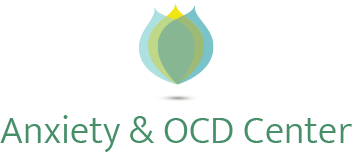FREQUENTLY ASKED QUESTIONS
At the Anxiety & OCD Center
Is the Anxiety & OCD Center the right fit?
At the Anxiety and OCD Center our standard of care is excellent and our providers reflect that standard. The Anxiety and OCD Center is staffed by highly trained licensed psychologists and psychology residents who are compassionate and sensitive to the very difficult circumstances clients face.
“By standard patient improvement measurements, as well as by patient retention and outside referrals, the Center’s treatment performance is excellent,” says Dr. Erwin.
Next to personal fit, the most important consideration in finding the right provider is selecting a provider who is trained in evidence-based treatment. Evidence-based treatment means that the treatment was thoroughly studied in clinical research trials and found to be highly effective. It is more important to have less frequent sessions of effective treatment than to not have access to effective treatment.
At the Anxiety and OCD Center, we demystify the psychological disorders and psychotherapy by delivering these treatments with the same specific, short-term strategies that have been shown to be highly effective. Find out about all of our anxiety related services.
Am I getting the right treatment?
A specialized form of cognitive-behavioral treatment called Exposure with Response Prevention is the first line treatment for the anxiety disorders. It is the only treatment that effectively treats obsessive compulsive disorder (March et al., 1997; American Academy of Child and Adolescent Psychiatry, 1997, 1998).
What is Evidence-Based Treatment?
Evidence-based treatment is defined by the American Psychological Association as, “the integration of the best available research with clinical expertise in the context of patient characteristics, culture, and preferences” (APA). With evidence-based treatment, data and research are used by trained clinicians to provide best practice treatments that are individually tailored to their client. As such, effectively implemented evidence-based treatments have the best outcomes in treating psychiatric disorders. Although evidence-based treatments are effective, they are not widely taught to students studying to become clinicians, they are not widely practiced by mental health clinicians, and they are therefore not widely available to those seeking treatment. At the Anxiety and OCD Center, the treatments provided are best-practice evidence-based treatments. Clinicians at the Anxiety and OCD Center are specialists in the treatment of the anxiety and related disorders. Specialists are trained in evidence-based treatments of particular disorders and are necessary in the mental health field in much the same way as specialists such as cardiologists are necessary in the field of medicine.
What is Cognitive Behavioral Treatment?
Cognitive Behavioral Treatment (CBT) is the first-line, evidence-based treatment of many disorders. There are specialized forms of CBT for different disorders, such as anxiety disorders, Tourette syndrome, trichotillomania (hair pulling), depression, and other disorders. CBT is based on the principle that specific thoughts and behaviors increase in severity over time and reinforce the disorder. CBT focuses on challenging those thoughts and behaviors that reinforce the disorder. Effectively implemented CBT results in more flexible and objective thinking and in behaviors that are not influenced significantly by emotion.
What is Exposure with Response Prevention?
Exposure with Response Prevention, or ERP, is the first-line treatment of the anxiety disorders and obsessive-compulsive disorder. ERP is based on the treatment goal of reducing or eliminating anxiety and uses gradual exposure to anxiety-producing situations to decrease anxiety and increase tolerance of feared consequences. At the Anxiety and OCD Center, ERP is used to treat anxiety disorders, which reduces or eliminates anxiety symptoms on a long-term basis. Our goal is to fully reduce anxiety and help our patients live happier, healthier and more fulfilling lives.
Where do patients at the Anxiety & OCD Center come from?
Patients at the Anxiety and OCD Center travel locally and nationally for
assessment and treatment. Most patients travel within a 50-mile radius of the Philadelphia Main Line suburb of Malvern, and are self-referred or referred by physicians, private and public schools, and specialized inpatient anxiety disorder hospitals. Referral sources in the Philadelphia area include:
- Hospital of the University of Pennsylvania
- Children’s Hospital of Philadelphia
- Nemours/Alfred I. DuPont Hospital for Children
- Main Line Health System
- Reading Hospital
What is a session like?
At the initial appointment the client’s current symptoms and history are assessed Previous testing and reports are very helpful in this process. From this assessment, diagnoses are made and treatment goals are set. Subsequent treatment sessions are scheduled at an agreed-upon frequency that meets the clinical needs of the patient.
We provide online patient forms that you can fill out prior to your appointment.
How long is a treatment session?
Insurance companies define a treatment session as an appointment of 45 minutes. At the Anxiety and OCD Center, we attempt to give each patient as close to an hour as possible, but cannot promise longer than 50 minutes. Read more about our treatment programs.
Will my treatment be covered by my health insurance?
The licensed psychologists and psychology residents at the Anxiety and OCD Center are highly trained specialists in the treatment of anxiety disorders, OCD, and related disorders, and are out-of-network providers. Clients pay at the time of the treatment appointment and submit these visits to their health insurance company to be reimbursed at the out-of-network rate. Before scheduling an appointment, please check with your insurance company regarding your out-of-network benefits. The fees to receive treatment from a psychology resident are lower. Most insurance companies will not reimburse fees for services provided by a psychology resident.
I think I have an anxiety disorder, but I don’t know if anyone would understand my symptoms.
Anxiety disorders and obsessive compulsive disorder (OCD) can manifest themselves in forms that are not widely publicized, poorly understood, and frequently misdiagnosed.
Examples include:
- Unwanted and anxiety-provoking thoughts
- Fear of acting on unwanted thoughts
- Fears that involve using the bathroom, eating, chewing, or swallowing
- Fears that are not logical
Many individuals who suffer from these forms of anxiety and OCD are ashamed of their symptoms and do not communicate their fears since they believe that others will not understand.
Should loved ones be involved with the treatment of an anxiety disorder?
It may be important to include loved ones in treatment since loved ones are frequently involved in maintaining the client’s disorder. The decision to include loved ones is made on a case-by-case basis, and depends upon whether the client is a child or adult, and whether the client wants their loved ones involved in their treatment.
How can I help my child in school?
A decision to involve a child’s school is always made in consultation with parents and is always focused on the best course of treatment for the child. It is frequently helpful, and sometimes necessary to involve a child’s school in treatment, especially when a disorder causes poor academic performance and negative social interactions.
Parents worry that involving the school or requesting special school accommodations will stigmatize their child, causing social implications. Parents additionally worry that a diagnosis on record with the school will be reported to colleges.
The licensed psychologists and psychology residents at the Anxiety and OCD Center are very experienced in the issues surrounding involving a child’s school in treatment, and can help clients weigh the pros and cons of doing so. Written consent is necessary before any information is released to the school. This ensures that the parent and the child have complete control over any information that is released from the Anxiety and OCD Center to the school.
Read more about our assessment programs.
Can Dr. Erwin help my business or me professionally?
Through Dr. Erwin Consulting, Dr. Erwin provides executive coaching and workshops to C-level and mid-level executives, physicians, departments, and organizations on how to maximize personal and professional potential, setting trajectories for successful careers and increasing the corporate bottom line.
Corporate clients have come from, among others, pharmaceutical companies, universities, hospitals, financial institutions, and consulting companies.
Clients are coached in strategies to maximize performance and revenues, expand leadership capabilities, reduce stress, increase confidence, teach conflict resolution and communication skills, strengthen emotional intelligence, navigate career transitions, and maximize professional potential.
“Effective training is short term, strategy based and goal oriented, just as we want the executive and organization to be,” says Dr. Erwin.





